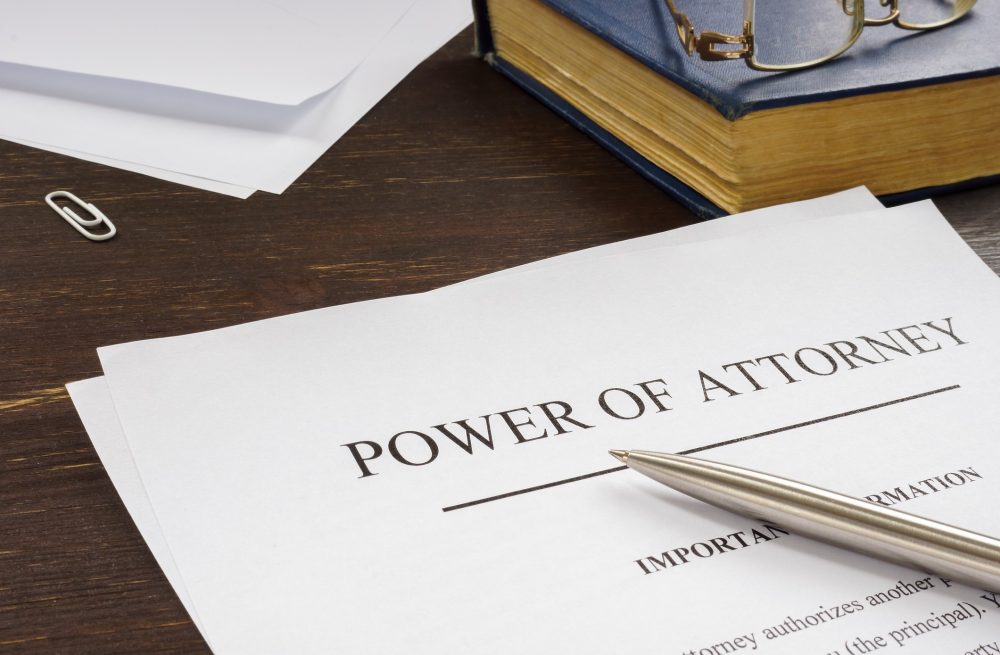Drafting a power of attorney (“POA”) is an important step in the estate planning process. However, there are some important factors and choices to make when you are drafting a Power of Attorney document. It is best to know all of your options and to talk to an attorney before you make any final decisions.
What is a Power of Attorney?
A POA is a legal document that allows another person to make decisions and act on your behalf. Those decisions or actions could be legal, financial, or medical in nature depending on the type of POA you execute. It is a good idea to establish a POA if you need assistance with carrying out your wishes ie: you are unable to make it to the bank due to illness or unavailability. You also may want to execute a POA as a safeguard for the future instance in which you might be unable to make your own decisions.
There are many types of POAs, some more specific than others. A medical POA, for example, allows the designated person, also known as the agent, to make decisions related to medical care. On the other hand, a general POA allows for more general financial and legal decisions to be made. Your agent under your POA will be able to make a wide range of business and legal decisions for you. This might include buying property, managing investments, applying for government benefits, selling property, or filing tax returns.
When a POA is durable, it means that it will remain valid even after you become incapacitated. To make your power of attorney durable, you must include specific language in the document declaring it so. That being said, you do have control over how and when your general durable POA goes into effect.
What is an Immediate Power of Attorney?
An immediate POA is, as the name suggests, one that goes into effect immediately. As soon as the document is signed, the POA is established and the agent can begin working on the principal’s behalf instantly. However, the principal must specify in the document if they want the POA to be durable and remain effective in the event they become incapacitated.
What is a Springing Power of Attorney?
A springing POA, on the other hand, goes into effect under certain conditions. These conditions are typically the event in which the principal becomes incapacitated. In this case, the agent would then take over making decisions for that individual. However, it should be noted that the implementation of this type of POA can take time. This is because, in order to be considered incapacitated, it is likely a written diagnosis from a doctor will be required. This proof will take time to obtain and then present. Therefore, if you are in need of a POA that will go into effect without delay, an immediate POA could be the way to go.
Ward, Shindle & Hall recommends a POA as part of a complete estate plan.

